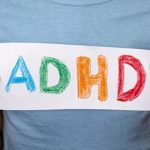
Women who are heavier or older may take longer to heal after surgery to reduce the size of their breasts, new research indicates. Body weight and age can affect complication risk after breast reduction, according to a report in the April 2023 edition of Plastic and Reconstructive Surgery. “While reduction mammaplasty is a safe procedure, our study suggests that patients in higher BMI categories may take longer to heal, with increased risk of wound healing times longer than two months,” lead author Dr. Jesse Payton said in a journal news release. Payton is a researcher at Baylor Scott & White Medical Center in Temple, Texas. Reduction mammaplasty is used to reduce back and neck pain and to improve body image and low self-esteem in women with breasts considered overlarge. For the study, researchers reviewed data on 277 patients who underwent reduction mammaplasty between 2014 and 2018. Patients’ average age was 36. Average BMI (body mass index) was 30 — the low end of obesity. Despite being at this high-BMI cutoff point, the patients were generally healthy, with low rates of other health problems, according to the study. About 49% of patients whose cases were reviewed had minor complications, such as superficial wound-healing problems. Major complications were uncommon, occurring in a little more than 4% of patients. On initial analysis, BMI was unrelated to the risk… read on > read on >



























-300x200.jpg)










